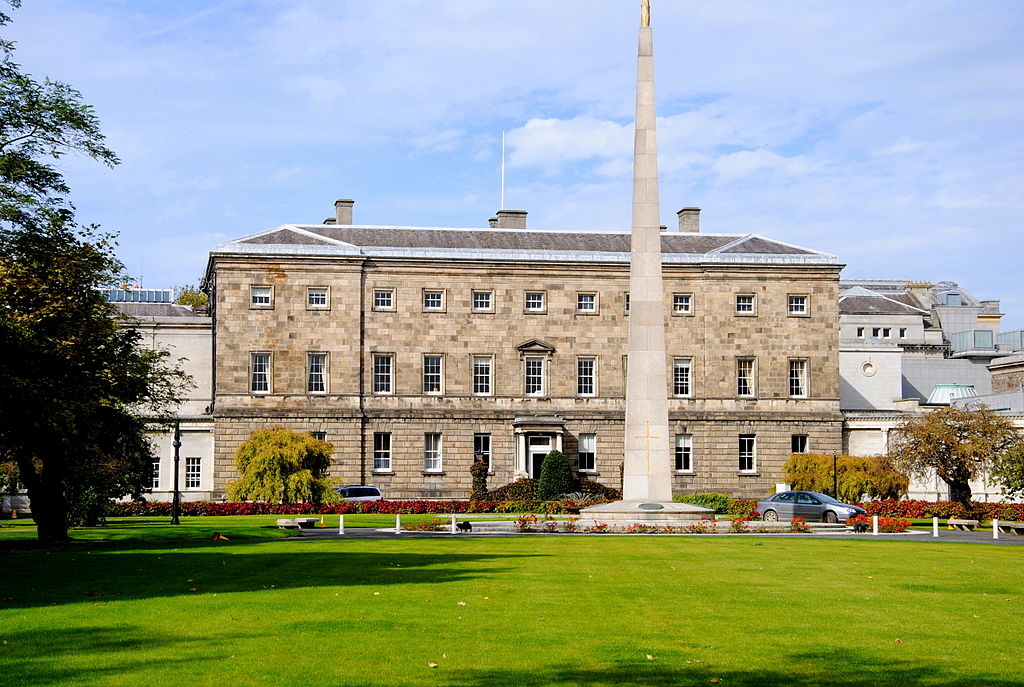|
In this mailing:
- Lawrence A. Franklin: Ireland's Anti-Israel
Drift: How Did It Come to This?
- Amir Taheri: Common Causes of
Three Crises in Three Continents
by
Lawrence A. Franklin • March 17, 2019 at 5:00 am
- Ireland,
as a European Union member state, is subject to the EU's
commercial rules. EU trade rules may prohibit Ireland's unilateral
action as an EU treaty requires common commercial policy for all
EU member states. The proposed law "could force US companies
with Irish subsidiaries to choose between violating the Irish law
or violating US Export Administration Regulations." — Orde
Kittrie, Professor of Law, Arizona State University.
- Worst,
there is no evidence that Ireland's "pro-Palestinian"
activities are in any way helping Palestinians, who continue to be
arrested, tortured and deprived of any viable future by their own
corrupt leaders. Most European activities seem actually focused on
trying to destroy Israel.
- What
is most notable, of course, is that there is no commensurate
hostility toward any other country. Ireland's rancid vote also
needs to be contrasted to its virtual silence regarding countries
that are daily committing hair-raising crimes against humanity,
such as Iran, China, Turkey, Syria, North Korea, Russia, Saudi
Arabia, Nigeria, Mauritania, Cuba, Venezuela or Sudan, for
instance. Why only Israel? What is now on display is simply a
hypocritical condemnation by Ireland of the only democracy in in
the Middle East with equal rights for all its citizens.
- What
is essential is that this double standard -- one set of rules for
Israel and a whole other set of rules for countries actually
committing atrocities -- must stop.

Ireland's legislative lower house
(Dáil) on January 29 approved a bill that would make it a crime for
Irish citizens to import or sell any product produced by Israelis in
areas located beyond the 1949 armistice lines, most of which, such as
Jerusalem, were actually liberated by Israel during the 1967 Six Day
War from their illegal occupation by Jordan in 1948-49. Pictured:
Leinster House, seat of the Irish Houses of Parliament. (Image source:
Leandro Neumann Ciuffo/Wikimedia Commons)
Ireland's legislative lower house (Dáil) on January 29
approved a bill that would make it a crime for Irish citizens to import
or sell any product produced by Israelis in areas located beyond the
1949 armistice lines, most of which, such as Jerusalem, were actually
liberated by Israel during the 1967 Six Day War from their illegal
occupation by Jordan in 1948-49, after Israel was attacked by five Arab
armies who were literally hoping to crush it the day of its birth. In
1967, Egypt, presumably hoping to finish the job it had started in
1948, created a casus belli (cause for war under international
law) by announcing a blockade of Israel's access to the Red Sea via the
Straits of Tiran.
by
Amir Taheri • March 17, 2019 at 4:00 am
- The
last century witnessed a plethora of ideology-based regimes: The
Union of Soviet Socialist Republics, the People's Republic of
China, the United Arab Republic and the Buddhist Socialist State
of Myanmar among others. The pretension behind all those labels
was that rather than being the art of solving the people's
problems, politics was a means of advancing the real or imagined
goals of an ideology.
- Another
thing the three crisis-struck regimes (Iran, Algeria, Venezuela)
have in common is that they are all oil-and-gas states, which
means that because they don't depend on income from taxation, they
can regard their people as expensive and bothersome extras.
- In
all three countries, the traditional military holds the balance of
power between the ruling elite of which their own top brass is
part and the mass of the rebellious citizenry.

The obvious thing that the crises in
Iran, Algeria and Venezuela have in common is that they are rooted in a
sharp disconnect between a discontented but combative people thirsty
for change and a tired but arrogant ruling elite hell-bent on hanging
onto power. Pictured: Supporters of Venezuela's opposition leader Juan
Guaidó gathered at a Citizens' Assembly on March 16, 2019 in Valencia,
Venezuela. (Photo by Eva Marie Uzcategui/Getty Images)
Three crises in three continents: Iran in Asia, Algeria
in Africa and Venezuela in Latin America. Do they have anything in
common?
The obvious thing they have in common is that all three
crises are rooted in a sharp disconnect between a discontented but
combative people thirsty for change and a tired but arrogant ruling
elite hell-bent on hanging onto power.
|































No comments:
Post a Comment